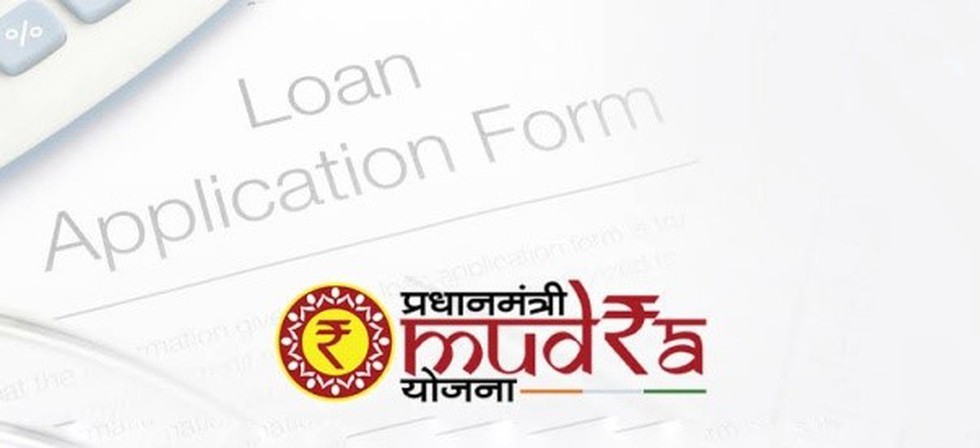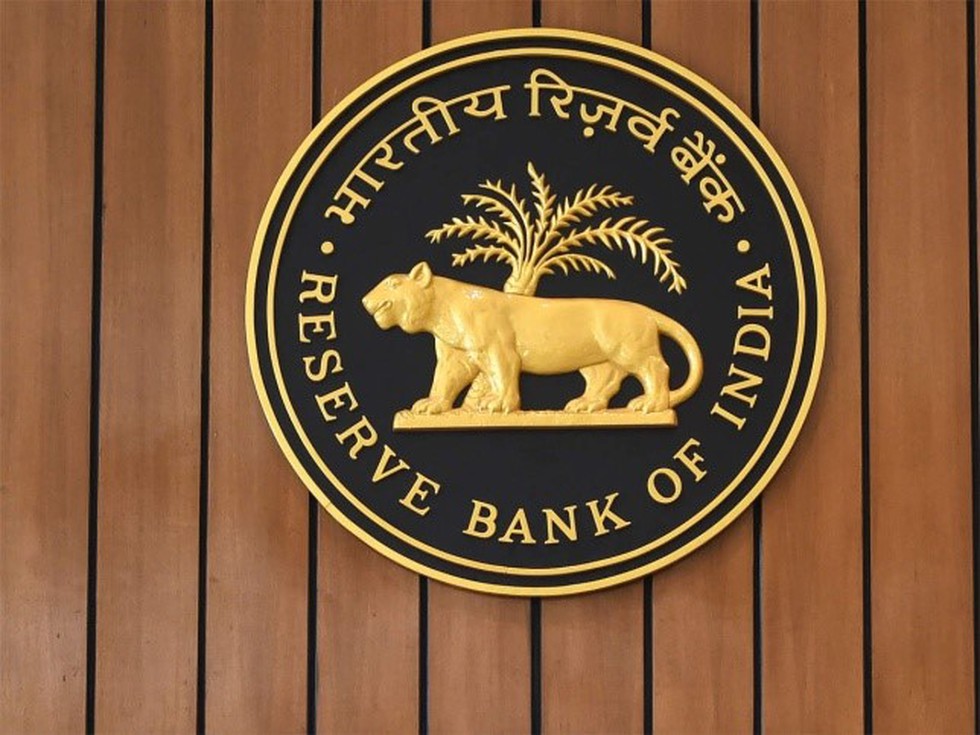
About MUDRA Loans:
- MUDRA Loan is offered under the Pradhan Mantri Mudra Yojana (PMMY).
- PMMY was launched in 2015 with the aim to help small-scale businesses expand and attain success.
- Support under the scheme: It provides loans of up to 10 lacks to non-corporate, non-farm small/micro enterprises.
- Purpose of loan: To start a new business, enhance existing or meet working capital requirements, and for business expansion purposes
- These loans are classified as MUDRA loans under PMMY.
- Eligibility: Any Indian Citizen who has a business plan for a non-farm sector income-generating activities such as manufacturing, processing, trading, or service sector.
- These loans are given by Commercial Banks, RRBs, Small Finance Banks, MFIs, and NBFCs.
- Types of loans:
- Shishu - Covering loans up to Rs 50,000;
- Kishor - Covering loans above Rs 50,000 and up to Rs 5 lakh;
- Tarun - Covering loans above Rs 5 lakh and up to Rs 10 lakh.

About Unlawful Activities Prevention Act (UAPA):
- The UAPA was enacted in 1967.
- It lays down the definitions and rules for designating an organization as an "unlawful association" if it is engaged in certain types of activities.
- ‘Unlawful activity’ is defined as any action taken by an individual or association – through an act, words, spoken or written, or by signs or visible representation – which is intended to, or supports a claim to, bring about the cession of a part of the territory of India, or the secession of a part of the territory of India from the Union, or which incites any individual or group of individuals to bring about such cession or secession.
- It covers activities which disclaim, question, disrupt or are intended to disrupt the sovereignty and territorial integrity of India, and which cause or intend to cause disaffection against India.
- In 2004, the UAPA was amended, and 'terrorist activities' were brought within its fold, under which 34 outfits, including the Lashkar-e-Taiba and the Jaish-e-Mohammad, were banned.
- Under the Act, the central government may designate an organization as a terrorist organization if it:
- commits or participates in acts of terrorism;
- prepares for terrorism;
- promotes terrorism;
- is otherwise involved in terrorism;
- The 2019 Amendment gave the Home Ministry the power to designate individuals as terrorists.
- The Act extends to the whole of India.
- It also applies to citizens of India who are abroad, persons in service of the Indian government, and persons on ships and aircraft registered in India.

About Monetary Policy Committee (MPC):
- The Reserve Bank of India Act, 1934 (RBI Act) has been amended by the Finance Act, 2016 to provide for a statutory and institutionalized framework for a MPC.
- Under Section 45ZB of the amended RBI Act, 1934, the central government is empowered to constitute a six-member MPC.
- Function: The MPC is entrusted with the task of fixing the benchmark policy rate (repo rate) required to contain inflation within the specified target level.
- Composition:
- MPC will have six members - the RBI Governor (Chairperson), the RBI Deputy Governor in charge of monetary policy, one official nominated by the RBI Board, and the remaining three members would represent the Government of India.
- The external members hold office for a period of four years.
- The quorum for a meeting shall be four Members, at least one of whom shall be the Governor and, in his absence, the Deputy Governor, who is the Member of the MPC.
- The MPC takes decisions based on a majority vote. In case of a tie, the RBI governor will have the second or casting vote.
- The decision of the MPC would be binding on the RBI.

About Finance Bill:
- Financial Bills are also called "Act for Appropriation of Funds for Appropriations".
- Financial bills are responsible for fiscal matters such as government spending or revenue.
- It specifies the amount of money to be spent by the government and the way it is to be spent.
- According to Rule 219 of the Lok Sabha's Rules of Procedure, a "Finance Bill" is defined as the Bill that is typically introduced each year to give effect to the Government of India's financial proposals for the upcoming fiscal year, as well as a Bill to give effect to supplementary financial proposals for any period.
- Financial bills are a component of the union budget. The Indian Constitution's Article 110(a) requires that a finance bill be presented together with the budget.
- It proposes all the necessary legal changes required for the proposed tax adjustments.
- It is accompanied by a Memorandum containing explanations of the provisions included in it.
- When a question arises about whether a Finance bill is a money bill or not, the speaker of the house decides on the matter, and his decision shall be final in this regard.
Types Of Financial Bills:
- Financial bills (i): Article 117 (1)
- It includes not only the subjects stated in Article 110 of the Constitution but also other legislative provisions.
- Financial bill (i) is comparable to the money bill in two ways. Firstly, both of these bills can only originate in the Lok Sabha and not Rajya Sabha. Secondly, both the bills can be introduced only on the President's advice.
- A finance bill (I) follows the same parliamentary process as an ordinary bill in all other respects.
- Financial bills (ii): Article 117 (3)
- A financial bill (II) does not contain any of the items listed in Article 110, but it does contain measures impacting Consolidated Fund of India
- It is regarded as an ordinary bill and is handled in every way by the same parliamentary process as an ordinary bill.
- This bill's sole unique feature is that neither House of Parliament may pass it without the President first requesting that it be brought up for consideration.
What is a Money Bill?
- Under Article 110(1), a Bill is said to be a Money Bill if it only contains provisions related to taxation, borrowing of money by the government, and expenditure from or receipt to the Consolidated Fund of India.
- Bills that only contain provisions that are incidental to these matters would also be regarded as Money Bills.
- Who decides if a Bill is a Money Bill? The Speaker certifies a Bill as a Money Bill, and the Speaker’s decision is final.
- Passage of Money Bills:
- A Money Bill may only be introduced in Lok Sabha on the recommendation of the President.
- It must be passed in Lok Sabha by a simple majority of all members present and voting.
- Following this, it may be sent to the Rajya Sabha for its recommendations, which Lok Sabha may reject if it chooses to. If such recommendations are not given within 14 days, it will be deemed to be passed by Parliament.
How is a Money Bill different from a Financial bill?
- While all Money Bills are Financial Bills, all Financial Bills are not Money Bills.
- For example, the Finance Bill, which only contains provisions related to tax proposals, would be a Money Bill.
- However, a Bill that contains some provisions related to taxation or expenditure but also covers other matters would be considered a Financial Bill.
- The Rajya Sabha cannot amend or reject the money bill, but it has the power to amend or reject the finance bill.
- Money bills and finance bill (1) can be introduced only in the Lok Sabha, whereas a Finance Bill (2) can be introduced both in Rajya Sabha and the Lok Sabha.
- To resolve a deadlock, the President can summon a joint sitting of Lok Sabha and the Rajya Sabha in case it is a finance bill. However, no such provision is made in case of a money bill.

About Securities Transaction Tax (STT):
- What is it? It is a direct tax charged on the purchase and sale of securities listed on the recognized stock exchanges in India.
- It is levied and collected by the central government of India.
- STT is governed by Securities Transaction Tax Act (STT Act), and STT Act has specifically listed various taxable securities transactions,e., transactions on which STT is leviable.
- Taxable securities include equities, derivatives, or equity-orientedmutual funds investment units (excluding commodities and currency).
- The rate of taxation is different for different types of securities.
- STT is not applicable to off-market transactions or to commodity or currency transactions.
- The liability of applying the STT is on the broker when the client undertakes transactions in the stock market. The collected amount is then paid to the government.
- The charges and rate of STT are reflected on the contract notes which a broker provides to its clients for every execution of trades.
What is Futures and Options Trading?
- Futures and options are the major types of stock derivatives trading in a share market.
- These are contracts signed by two parties for trading a stock asset at a predetermined price at a later date.
- It provides individuals to reduce future risk with their investment through pre-determined prices.
- Future and options in the share market are contracts that derive their price from an underlying asset (known as underlying), such as shares, stock market indices, commodities, ETFs, and more
- Future v/s Option:
- Future and option trading are different in terms of obligations imposed on individuals.
- While futures act as a liability on an investor, requiring them to follow up on a contract by a pre-set due date, an options contract gives an individual the right to do so (provides a buyer with a choice to do the same, if he/she profits from a trade.)
What are Derivatives?
- Derivatives are financial contracts set between two or more parties that derive their value from an underlying asset, group of assets, or benchmark.
- A derivative can trade on an exchange or over the counter.
- Prices for derivatives derive from fluctuations in the underlying asset.
- Common derivatives include futures contracts, forwards, options, and swaps.

About Jute:
- Jute is one of the most important natural fibres after cotton in terms of cultivation and usage
- Climatic conditions required for its growth
- Temperature:Between 25-35°C
- Rainfall: Around 150-250 cm
- Soil Type:Well-drained alluvial soil.
- India is the largest producer of jute followed by Bangladesh and China.
- It is mainly grown in eastern India because of the rich alluvial soil of the Ganga-Brahmaputra delta.
- In India, major jute-producing states include West Bengal, Bihar, Odisha, Assam, Andhra Pradesh, Meghalaya and Tripura.
What is the Minimum support price?
- A minimum support price (MSP) is a minimum price for any crop that the Government considers as remunerative for farmers and hence deserving of “support”.
- It is also the price that Government agencies pay whenever they procure a particular crop from the farmers.
- There is currently no statutory backing for these prices, nor any law mandating their enforcement.
- Crops covered under MSP: At present, the Central Government sets MSP for 23
- 7 cereals (Bajra, wheat, maize, paddy barley, ragi and jowar);
- 5 pulses (tur, chana, Masur, urad and moong);
- 7 oilseeds (sunflower, mustard, niger seed, soya bean, groundnut, sesame and sunflower);
- 4 commercial crops (raw jute, cotton, copra and sugarcane).
How does the Government decide on the MSP?
- The Government announces the MSP at the start of each cropping season (Rabi and Kharif).
- The MSP is decided after the Government exhaustively studies the recommendations made by the Commission for Agricultural Costs and Prices (CACP).
- CACP is an attached office of the Ministry of Agriculture and Farmers Welfare.





























































































































































.png)
.png)
.png)
.png)
.png)


.png)
.png)
.png)





.png)
.png)






.png)
.png)
.png)
.png)
.png)
.png)
.png)
.png)
.png)

.png)







.png)
.png)


.png)
.png)
.png)


.png)

.png)
.png)





.jpg)

.png)
.png)


.png)

.png)
.png)
.png)

.jpg)

.jpg)


.png)

.png)
.png)
.png)
.png)
.png)
.png)
.png)
.png)
.png)
.png)




.png)

.png)





.png)
.png)
.png)
.png)
.png)
.png)
.png)
.png)
.png)
.png)
.jpg)
.jpg)

.png)
.png)
.png)
.png)
.png)
.png)
.png)
.png)
.png)
.png)
.png)
.png)
.png)
.png)
.png)
.png)
.png)
.png)
.png)
.png)
.png)
.png)



.png)
.png)

.jpg)
.jpg)


.jpg)
.jpg)
.jpg)
.jpg)
.jpg)

.jpg)








.jpg)
.jpg)
.jpg)
.jpg)
.jpg)














.jpg)
.jpg)







.jpg)


















.jpg)
.jpg)






























































































.jpg)
.jpg)


























.jpg)

.jpg)










.jpg)








.jpg)




.jpg)










.jpg)


















.jpg)












































.jpg)














.jpg)
.jpg)
.jpg)





.jpg)

.jpg)
.jpg)





































































.jpg)


































.jpg)
.jpg)
















































.jpg)












.jpg)


.jpg)




.jpg)
.jpg)
.jpg)

.jpg)
.jpg)
.jpg)
.jpg)

.jpg)
.jpg)
.jpg)

.jpg)
.jpg)
.jpg)
.jpg)
.jpg)
.jpg)
.jpg)
.jpg)

.jpg)


.jpg)
.jpg)
.jpg)
.jpg)
.jpg)
.jpg)
.jpg)
.jpg)
.jpg)
.jpg)











.jpg)
.jpg)





.jpg)
.jpg)
.jpg)
























.jpg)
























.jpg)









.jpg)
.jpg)







.jpg)
.jpg)









































.jpg)
.jpg)
.jpg)
.jpg)
.jpg)

.jpg)
.jpg)
.jpg)
.jpg)
.jpg)


.jpg)
.jpg)
.jpg)
.jpg)
.jpg)

.jpg)
.jpg)
.jpg)
.jpg)
.jpg)
.jpg)
.jpg)
.jpg)
.jpg)
.jpg)
.png)

.png)
.png)

.png)
.png)
.png)
.png)


.jpg)
.jpg)

.jpg)
.jpg)
.jpg)

.png)
.png)
.png)
.png)
.png)
.png)
.png)

.png)
.png)
.png)
.png)
.png)
.png)
.png)
.png)
.png)
.png)





































































-min.png)



.png)




.png)








































